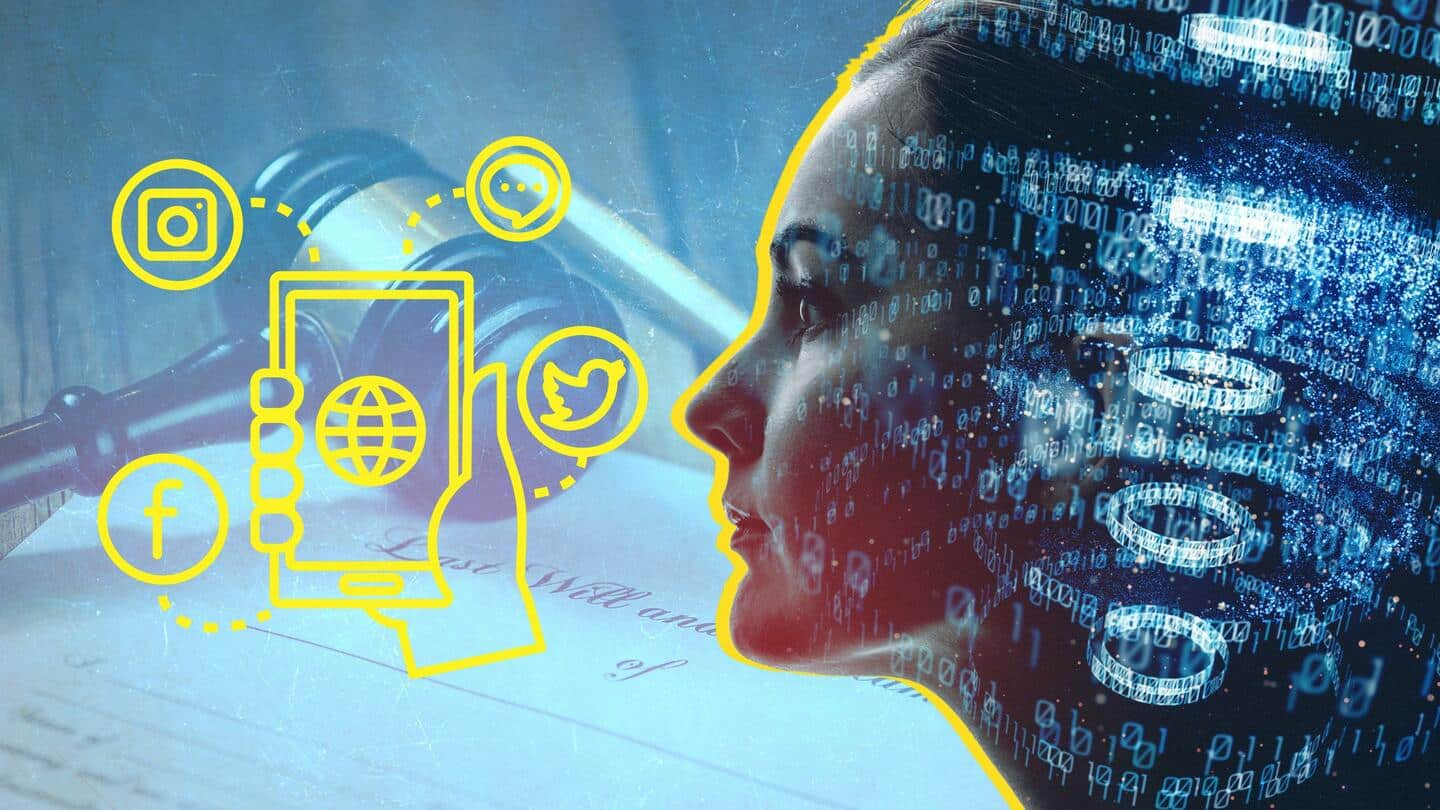
#NewsBytesExplainer: What is digital will and how to make one?
What's the story
Would it be far-fetched to say that we live half our lives offline and the other half in a virtual world? What happens to these virtual belongings of ours when we die? Will they disappear in the vast virtual landscape or can we bequeath them upon someone with a 'digital will'? Here, we take a look at the meaning and importance of digital will.
Informal document
What is a digital will?
A will or testament expresses a person's desires as to how their estate and belongings should be distributed after their death. Similarly, a 'digital will' determines what happens to a deceased person's virtual assets, social media accounts, and more. It can be a separate document or can be part of the traditional will. It is a relatively new concept.
Key differences
How is a digital will different from a traditional will?
A traditional will always has the backing of the law. It is a legal document. On the other hand, a digital will may be an informal document. For instance, if you leave a piece of paper with your login details to your social media account, that can be considered a digital will. Notably, do not confuse 'digital will' with a legally binding electronic will.
Coverage
What kind of data can be included in digital will?
A digital will is the gateway to a deceased person's virtual life. It can include all or some of what you did online. It can include your email accounts, social networking accounts, photo and video sharing accounts, cloud storage accounts, online shopping accounts, personal websites, music libraries, and more. It is up to the testator to choose what to include in the will.
Legality
Is a digital will legally binding?
For a digital will to be legally binding, it has to be created in the same manner as a traditional will. In the US, the Revised Uniform Fiduciary Access to Digital Assets Act or RUFADA brought some clarity into how to make a legally binding digital will. It allows the testator to appoint a personal representative to administer a digital will.
Local laws
What is the legal status of digital will in India?
In India, there are no specific laws that govern digital wills. We have the Information Technology Act 2000, which applies to all digital information. However, testamentary disposition and will are outside the purview of the act. They are governed by the Indian Succession Act. The act has no mention of digital wills. However, it is highly advisable to make a digital will.
How to
How to create a digital will?
With the increase in our virtual presence, it is always better to include our digital assets in a traditional will or draft a separate digital will. In the case of a digital will, make an inventory of digital assets, appoint a personal representative and an alternative representative, and draft a formal will that meets legal requirements. Give the representative authority to carry out instructions.
Digital footprint
What happens to your data on websites after death?
In the virtual space, you spend most of your time on different websites, including social media and online shopping, among others. What happens to your data on these websites after your death? RUFADAA gives personal representatives the same access rights as original users. In the absence of such legislation, the companies and courts will decide what happens to your digital assets.
Precedents
Facebook and Meta allow memorialization of a dead person's account
Now, let's take a look at some leading social media platforms and their policy concerning a dead person's data. Meta's Facebook and Instagram allow users to memorialize their accounts. They can nominate legacy contacts to manage the account after their death. Twitter and LinkedIn will deactivate a deceased person's account if an authorized representative or immediate family member reaches out to them.